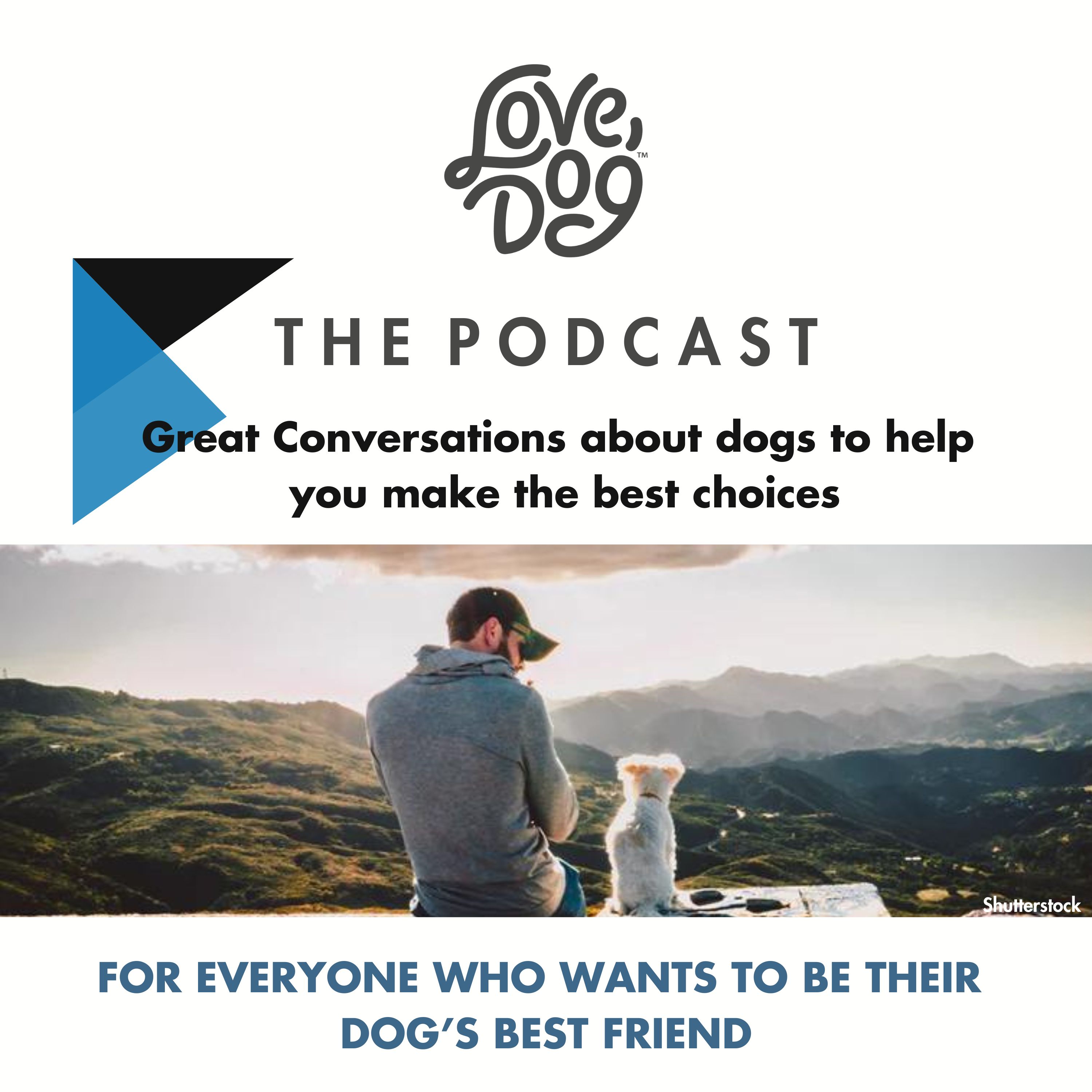E:12 How Much is That Doggie in the Window? The cruelty of puppy mills and how to avoid them
SHOW QUOTE
In the state of Colorado: "93% — that's a huge number! — 93% of the puppies that come in from out-of-state and are sold through the pet stores come from puppy mills or puppy mill brokers. 93%!! So that tells you that if you're going into a pet store, you are almost certainly getting a puppy from a mill."
Pam Dickerson, President, Colorado Citizens for Canine Welfare
****
Visit our website lovedog.com for in-depth articles, adoptions, and great online shopping!
Shop for the pup in our store: Woof & Wear: The Shop
****
OUR SPONSOR
JOPE Hip & Joint Chews, veterinarian-crafted, made with UC-II collagen along with high quantities of Omega-3 and curcumin to improve mobility.
****
ABOUT 3CW
Colorado Citizens for Canine Welfare (3CW) is dedicated to the idea that dogs are lifelong companions who deserve love, respect, and concern for their health and welfare. 3CW supports the efforts of responsible dog breeders , dog-rescue groups, and animal shelters by serving as a “Find a Dog” resource for people who want to offer a good home to a puppy or adult dog.Their goal is to see every dog in his or her rightful place in this world—in our homes and in our hearts.
3CW operates with an all-volunteer staff, and 100% of donations are used to support their public education and public policy efforts.
ABOUT THE SHOW
The conversation in this episode delves into the cruelty of puppy mills, the impact these mills have on dogs, and how to avoid supporting the puppy mill industry. It also explores the work of Colorado Citizens for Canine Welfare (3CW) and their efforts to educate the public about this serious issue.
Pam Dickerson and Cheryl Saipe from 3CW describe the bleak, often filthy, and sometimes dangerous conditions in puppy mills, the ongoing trauma experienced by parent dogs, and the importance of ethical breeding practices. A portion of the conversation focuses on education, advocacy, and awareness, both nationally and state-by-state. The guests provide insights into the work being done in Colorado and the need for national action to address the issue. They also discuss the common health issues in dogs from puppy mills and the importance of responsible breeding practices. Bottom line: Puppy mills are bad for dogs.
CHAPTERS
00:00 Introduction to the Cruelty of Puppy Mills
03:45 Advocacy for Dog Welfare and Ethical Breeding Practices
10:38 Understanding Puppy Mills and How to Avoid Supporting Them
38:41 Combatting Puppy Mills: Advocacy and Education
43:51 The Impact of Puppy Mills on Dog Health
51:24 Common Health Issues in Dogs from Puppy Mills
59:36 Promoting Responsible Breeding Practices
Show Links
3CW- Colorado Citizens for Canine Welfare
CHIC - Canine Health Information Center
AKC - American Kennel Club
The Humane Society of The United States , THE HORRIBLE HUNDRED
Pet Animal Care and Facilities Act (PACFA)
Their Incredible Journey, by Steve Duno on lovedog.com
The Functional Dog Collaborative
National Mill Dog Rescue, Peyton, CO
USDA - List of Active dog breeders and dealers
BREEDING FOR HEALTH
The consumer deserves to be able to purchase a puppy that has been bred for long life and health. Puppies sold through pet stores come from commercial breeders who DO NOT BREED FOR LONGEVITY AND HEALTH. We know this with 100% certainty.
You may wonder how a person could possibly know if a puppy for sale had been bred for longevity and health. Below are some things that responsible, preservation breeders do that COMMERCIAL BREEDERS DO NOT DO.
1. Prior to breeding, both the sire and the dam have ALL the known breed-specific health tests (in accordance with the AKC parent breed club).
2. Those health test results are used by both the breeder and the buyer. Those results are registered in the Canine Health Information Center (CHIC) database and are accessible to the public.
· All responsible breeders conduct the breed-specific health tests and register the results on the CHIC site.
· No commercial breeders, AKA puppy mills, are known to have registered in CHIC the results of a single pair of dogs designated for breeding. Interpret that the health tests were not conducted at all.
· With simply the AKC registration numbers or the complete names of the parent dogs, the above information is verifiable at https://ofa.org/chic-programs/
3. Follow-up with puppy buyers over the life of the dog – Responsible breeders stay in contact with their puppy buyers and gather health information over the life of the dog. In addition to the breed-specific health tests, breeders use discoveries/information from follow-up contact with the buyers to fold back into their breeding program to improve their selections in order to produce the best puppies possible destined for longevity and health.
Since commercial breeders do not even know who is buying their puppies, they have no way to track the health of the puppy/dog over its lifetime to take advantage of new information on their “off-spring”.
From a consumer protection standpoint, it takes regulation and laws to prevent the public from being hoodwinked by a pet store owner who falsely claims that they buy puppies for resale from only good, responsible breeders.
All it takes to discover this transgression in breeding for health (or lack thereof) is to look up the AKC registration numbers of the parent dogs on the CHIC database. If there is no listing for the parent dogs, the breeder did not do the breed-specific health tests and register the results appropriately.
The public and the puppies pay the ultimate price for poor breeding. The consumer deserves better than this.
YOU'RE INVITED TO HOWL WITH US
On Instagram: @lovedognews
On Facebook: https://www.facebook.com/lovedognews
VIA Email: podcast@lovedog.com
Disclaimer: Love, Dog: The Podcast is intended for your enjoyment and for general information purposes only. We often interview veterinarians, scientists, behavior consultants, dog trainers, etc. You must always consult with your own credentialed canine and/or pet practitioners before implementing any training program or course of medical diagnosis and/or treatment.





